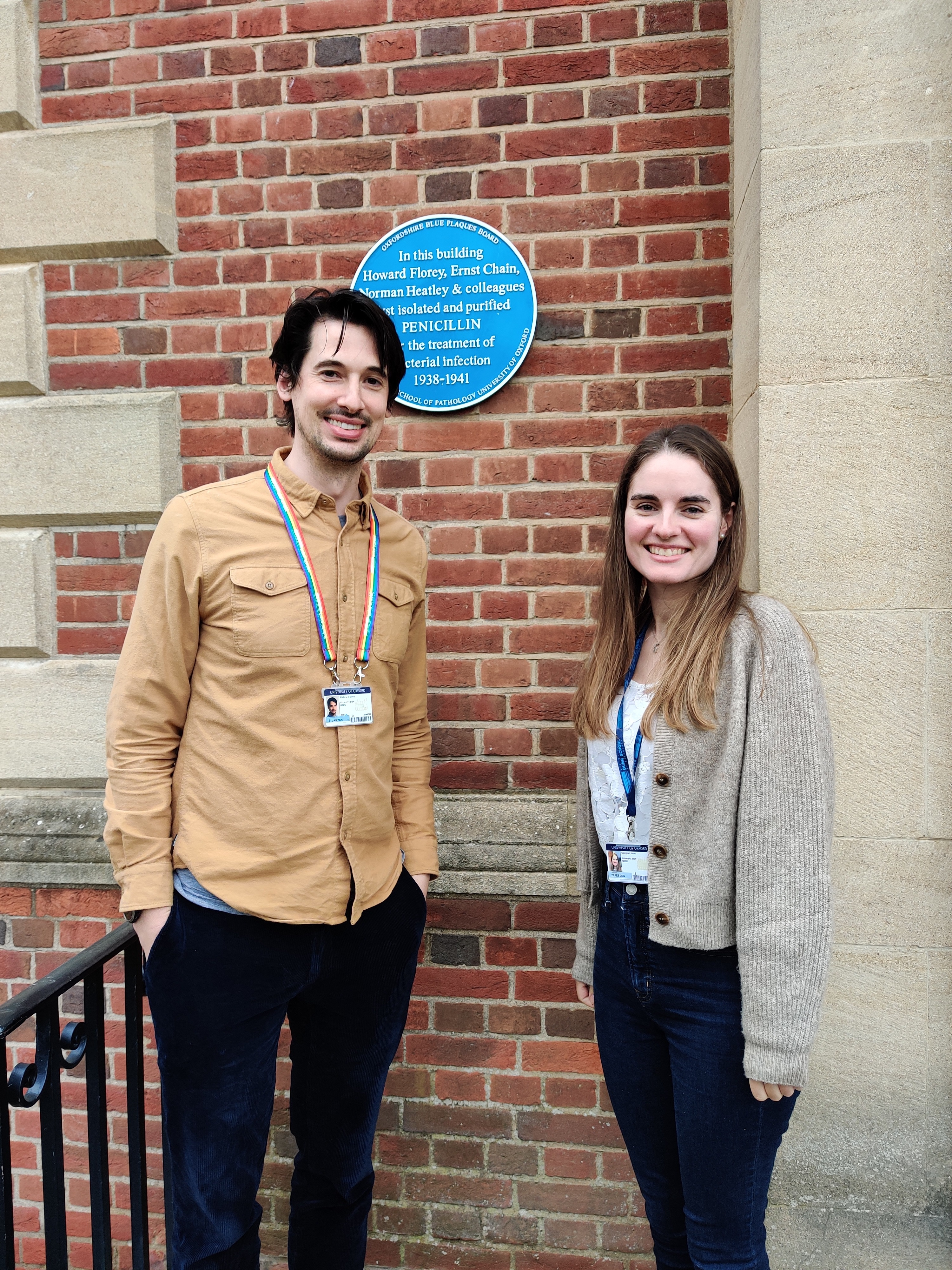Dunn School strengthens its research on bacterial pathogenesis
Dr Georgia Isom and Dr Mathew Stracy lead two new research groups in the Dunn School.
March marks the beginning of a new phase at the Dunn School with the arrival of two new research groups, led by Dr Georgia Isom and Dr Mathew Stracy. Both Dr Isom and Dr Stracy have secured highly competitive career development fellowships, which allow them to launch their independent groups. Dr Isom was awarded a Career Development Award by the Medical Research Council, and Dr Stracy received a Henry Dale Fellowship from the Wellcome Trust and the Royal Society. These generous fellowships will cover the costs of the first 5 years of their independent research, as well as additional career development training.
Originally from Warwickshire, Dr Isom obtained her degree in Biology at the University of Bath. She then did her PhD in Microbiology and Infection at the University of Birmingham, where she studied an important group of bacterial proteins, the mammalian cell entry (MCE)-containing lipid transporters. For her postdoctoral training, Georgia moved to the Langone School of Medicine (New York University), where she continued her studies on the MCE-containing lipid transporters, now using structural biology1. In her new lab, Georgia “will be focusing on the molecular mechanisms by which Gram-negative bacteria build and maintain their outer membrane.” She explains that “the outer membrane acts as a physical barrier that protects the bacteria from antibiotics, and therefore Gram-negative bacteria are often much more antimicrobial resistant.” The future work of the Isom lab promises to uncover new targets for antimicrobials.
After a degree in Physics at the University of Nottingham, Dr Stracy obtained an MSc in Science Communication at Imperial College London and worked as a communications officer at CERN. Mathew then joined the University of Oxford for his DPhil in Biophysics, where he explored fundamental molecular biology of bacterial DNA-binding proteins. He then moved to the Technion-Israel Institute of Technology to uncover how antibiotic resistance emerges during treatment of urinary tract infections using pathogen genomics and machine learning analysis of patient records2. Now with his new group, Mathew “will be studying how bacteria and bacterial infections respond to antibiotics […] to develop better ways to treat bacterial infections and ways to optimise the use of antibiotics to minimize the spread of resistance”. In particular, Dr Stracy is interested in “antibiotic tolerance, which is the ability of some bacteria to transiently enter a dormant state that can survive conventional antibiotic treatment, leading to infection recurrence.”
Although focusing on different scientific questions regarding bacterial pathogenesis, both the Isom and the Stracy groups aim to increase our understanding of antimicrobial resistance, a major global threat responsible for close to a million of deaths every year. Georgia commented that these numbers are “[…] predicted to just get worse and worse as bacteria continuously evolve new mechanisms of resistance, and there are already far too many reports of resistance to “last resort” antibiotics”. Therefore, the research from both the Isom and Stracy groups will further enhance the position of the Sir William Dunn School of Pathology, the place where penicillin turned from a laboratory curiosity into a life-saving drug, as a core institution on antimicrobial research!
1 DOI: 10.1016/j.cell.2020.03.030
2 DOI: 10.1126/science.abg9868
To find more information about the new research groups:
Georgia Isom’s group
– Group website: https://isomlab.org
– Twitter: @GL_Isom
Mathew Stracy’s group
– Group website: https://www.stracylab.com
– Twitter: @M_Stracy
Written by Joana Verissimo Ferreira (Carvalho lab) @joanapatriciaf
Edited by Ruth Ketley (Gullerova lab)
